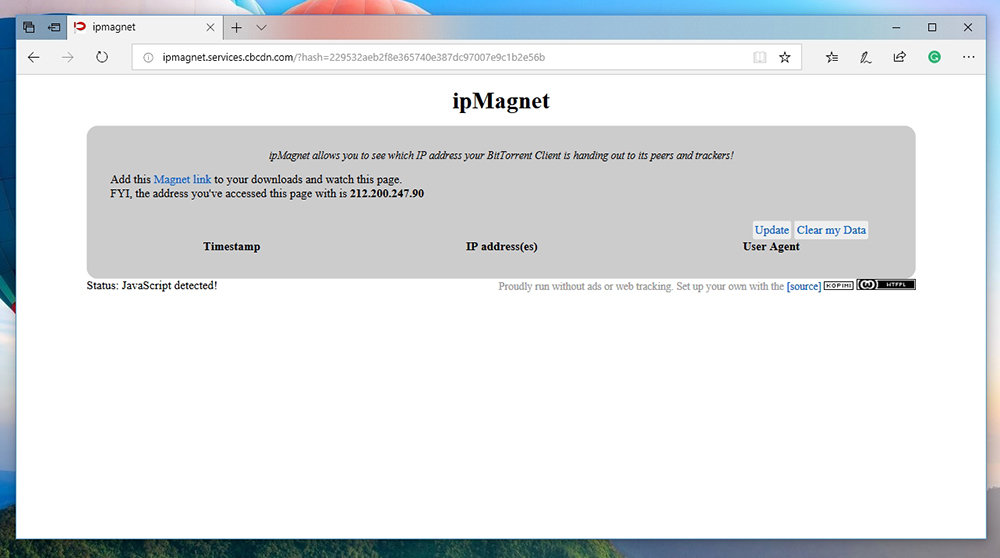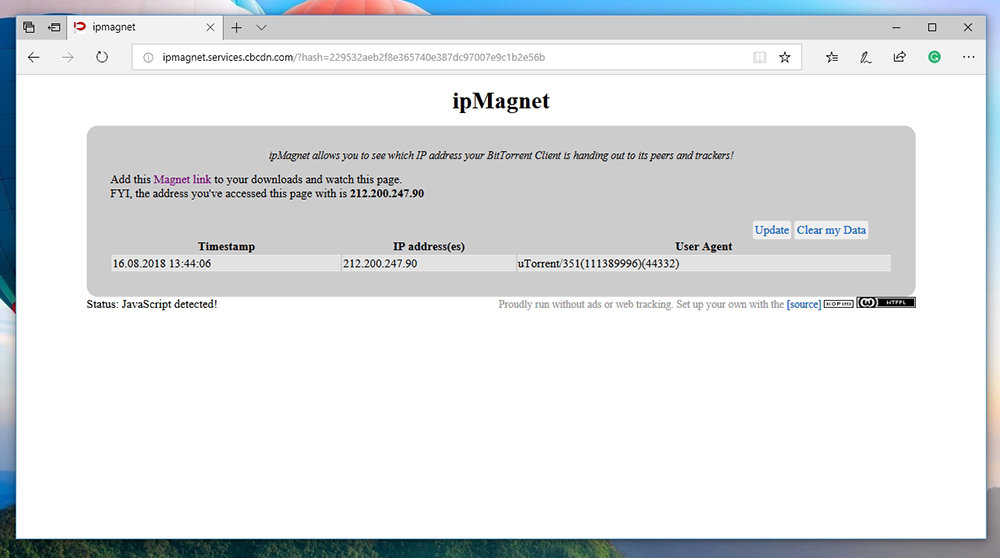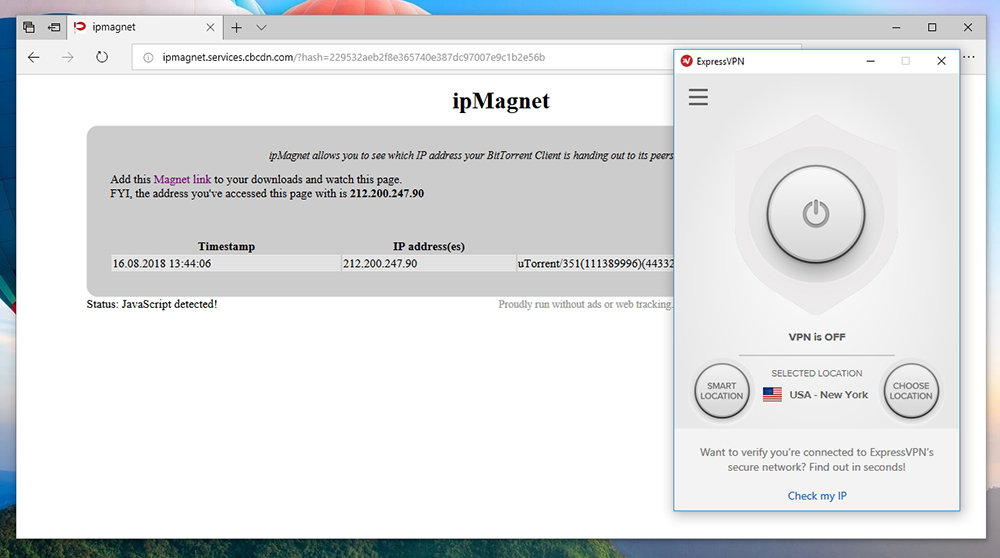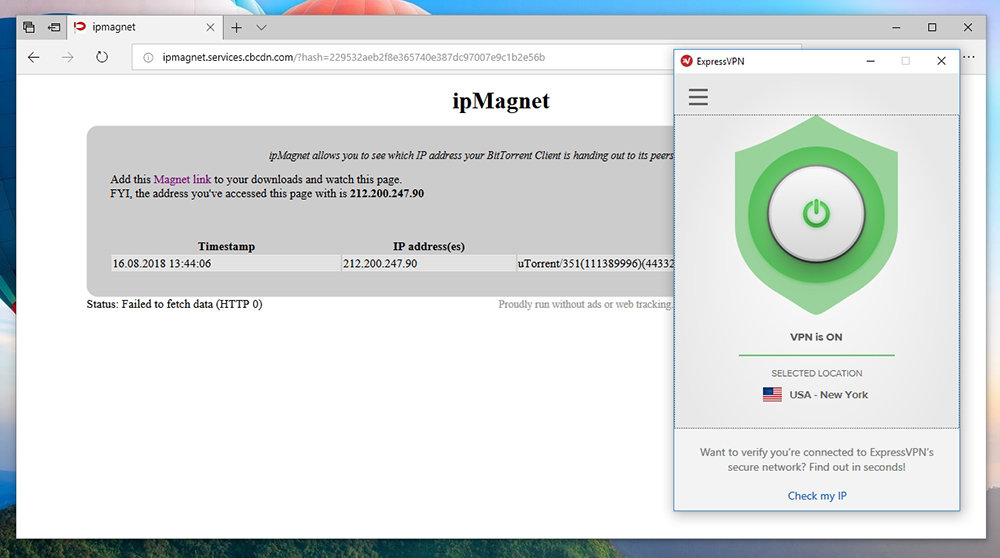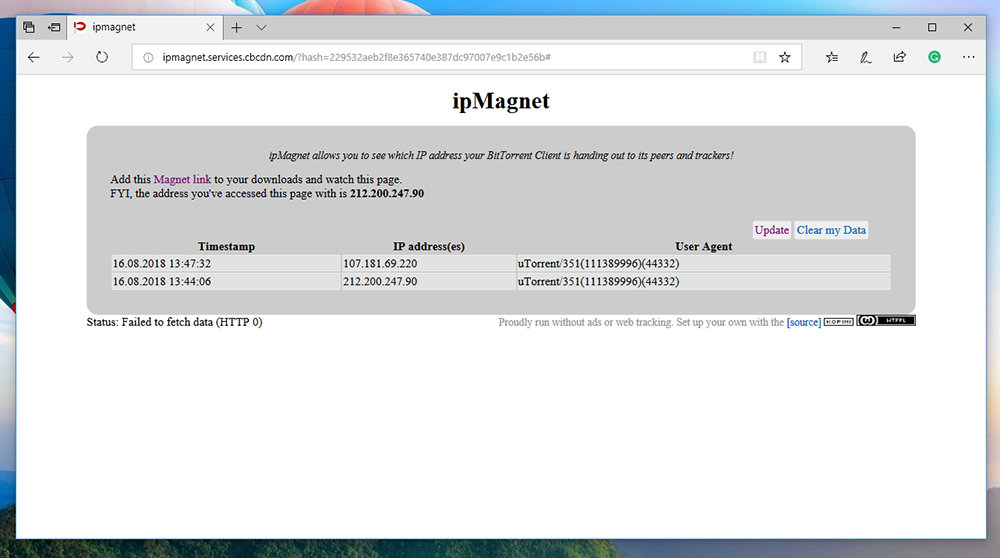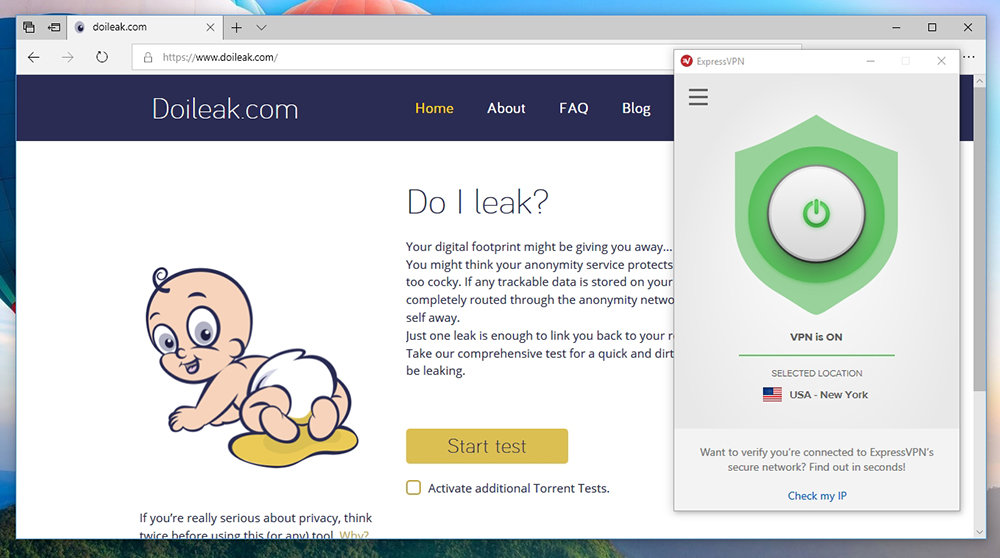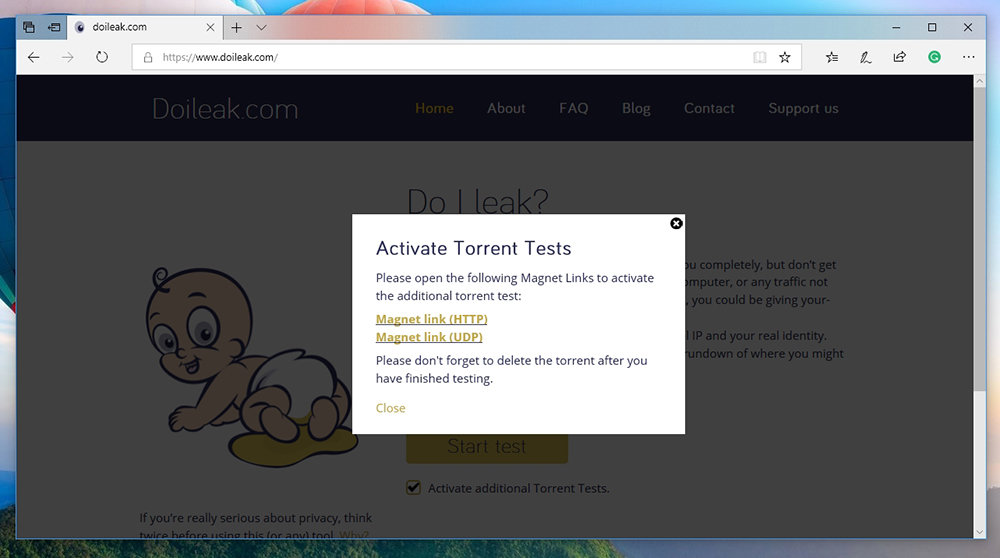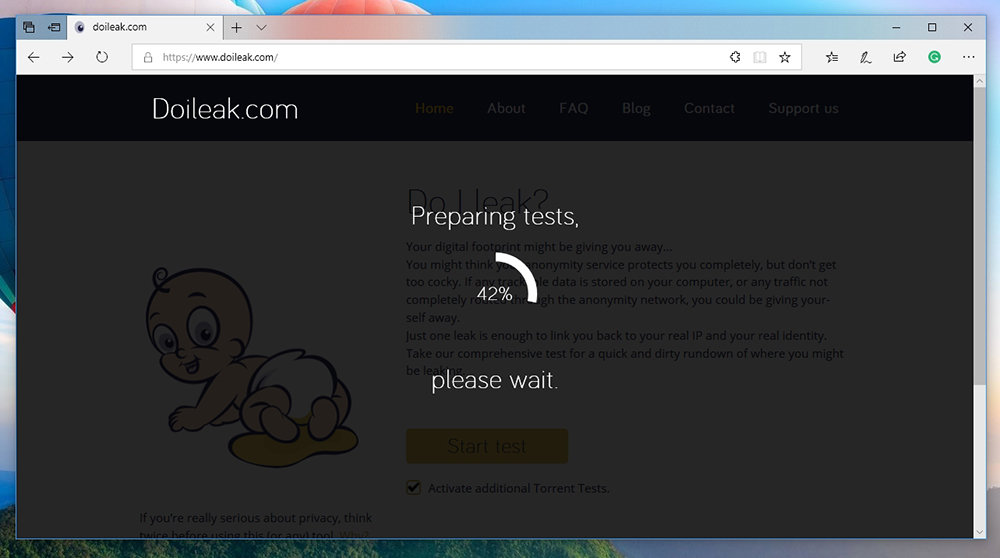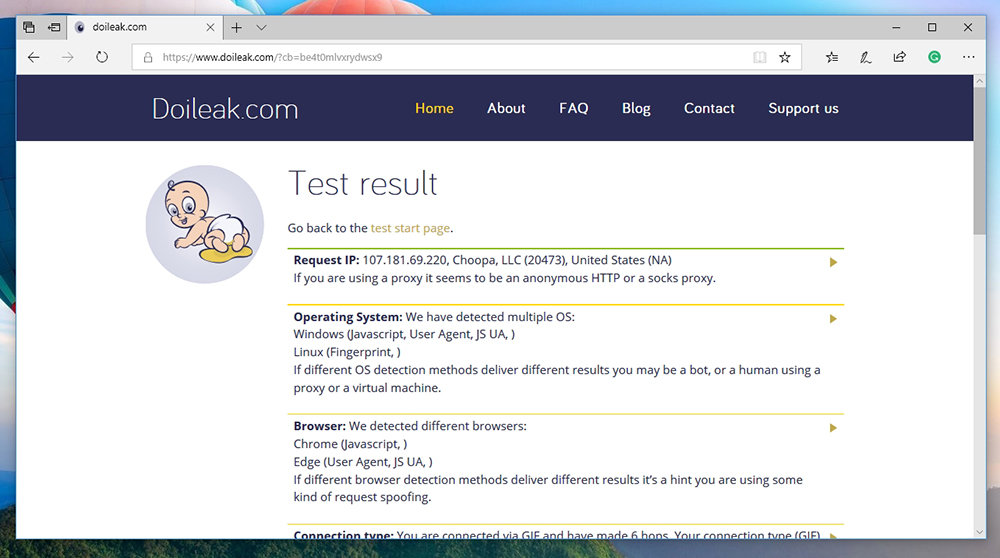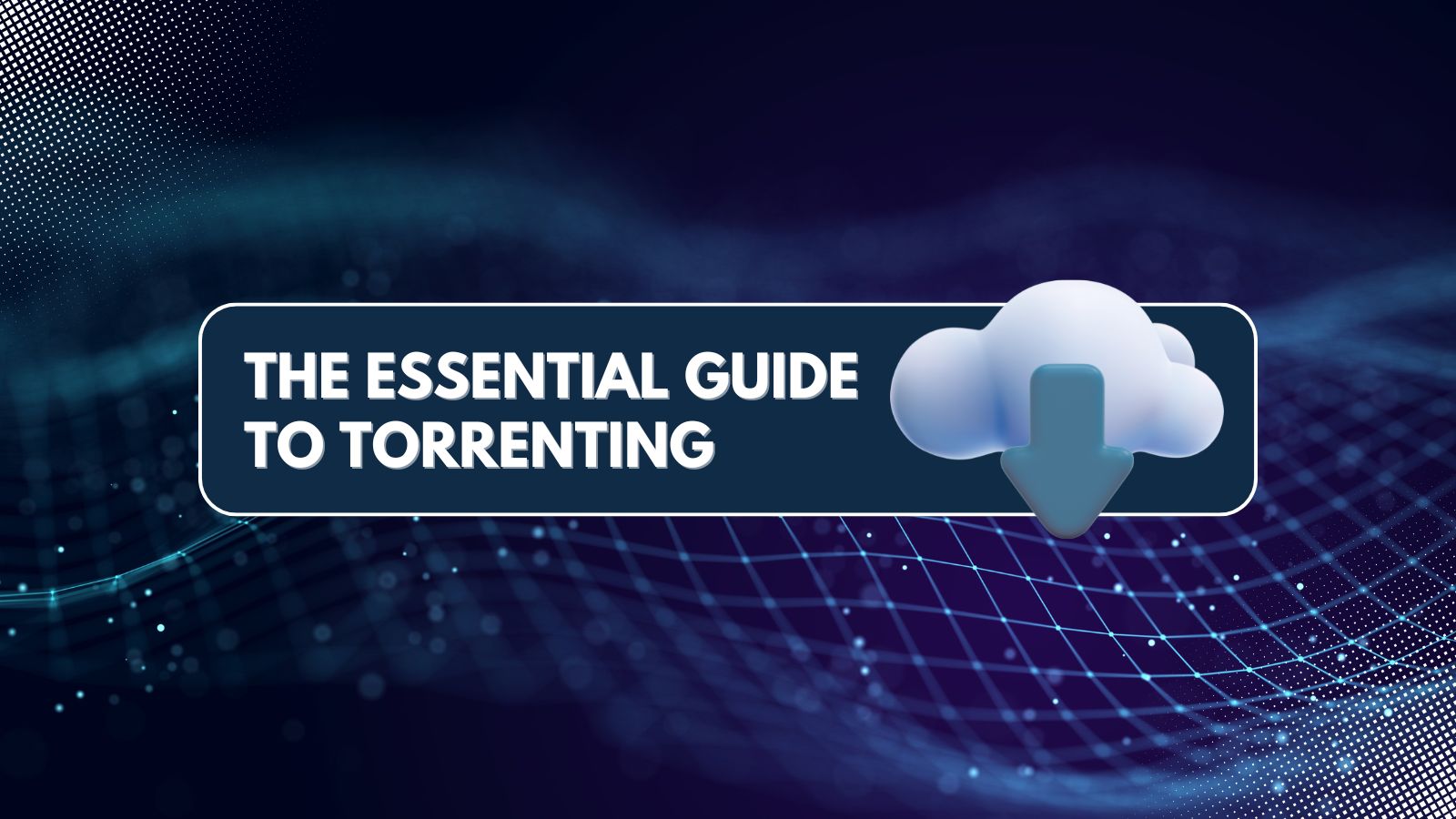
When you purchase through links on our site, we may earn an affiliate commission. Here’s how it works.
How To Check Your Torrent IP Address & Hide Your Real IP From Your Provider (ISP)
You probably already know about the dangers of downloading torrent files. Since there’s always the question of legality surrounding torrents, many P2P users are not aware of how exposed their personal information can be. In the center of this is your IP address, which serves as your unique digital identifier. By hiding it, you can conceal your online activity when downloading torrents and avoid possible drawbacks of using P2P file exchange. So, we are going to talk about how to check your torrent IP address and more.
We want this article to serve as a comprehensive guide to checking your IP address and making sure your torrenting is anonymized. Therefore, we'll start at the very beginning, and then we'll introduce you to new areas, such as using a VPN. Therefore, we won't only show you how to check your torrent IP address but how to get a new IP and therefore make sure you're properly protected on the Web.
Why is Your IP Address So Important?
First, we need you to understand a few things about IP addresses. This is why we’ll go over a few basic questions like what is an IP, why it’s important in the torrenting world, why you need to pay attention to it, and much more. So, let’s dive right in.
What is an IP Address?
Quite a lot could be said about IP addresses. However, we won’t spend too much explaining this term, especially since we already have a comprehensive guide to IPs, on our website.
In simple terms, your device’s IP address serves just like your ID card. There are hundreds of millions of those and you have your own IP, which is unique to your device. This is precisely how your ISP (Internet Service Provider) can track your online whereabouts. Also, this is sometimes why you can’t download torrents, even if you try with fully legal torrents of open source or public domain files. If your ISP doesn’t want you to engage in P2P traffic, it will throttle your connection as soon as it sees your IP address downloading torrents.
Is Your IP Visible Online?
There are actually two types of IP addresses. First, there are private IPs that form their own closed networks. Your router has a private IP and it assigns private addresses to devices connected to it. This applies to just about any device you connect to your router, such as your computer, smartphone, tablet, smart home devices, and more. These are called private addresses since they are used to allow communication within devices in your home.
As you know, every Web-connected device also has a public IP – which is the IP we’re talking about in this article. It’s fully visible online and you can easily trace someone’s IP.
It’s also interesting to note that every public IP has a wealth of information. If you know someone’s IP, you can easily find their physical location, their download and Web browsing history, and more.
Is it Possible to Hide Your IP?
This brings us the last question of this segment – can you make your IP invisible to other Web users? The truth is that there are numerous ways to hide your IP. The most trustworthy one is via VPN applications. These are designed to connect you to their secure servers, changing your IP in the process. With a fake IP (that is still fully functional, by the way), you can easily unblock websites and use the Web like you normally would.
When it comes to torrent IP addresses, you can do a lot by hiding it. First of all, your ISP won’t be able to track your whereabouts nor throttle your connection. On top of that, a reliable VPN will also encrypt all your incoming and outgoing data, making you practically invisible online.
How to Check Your Torrent IP Address?
First, we are going to show you how to check your torrent IP address. Then, we are going to discuss why using a VPN is a good idea, especially if you want to hide your online activity. So, here’s what you need to get started:
- First, you need a tracking torrent. These are special kinds of torrents that are used to track your IP address. However, it’s important to know which tracking service to use. Based on our previous experience, we will show you two tools: IPMagnet and DoiLeak.
- You also need to have a torrent client installed. You can use just about any since it doesn’t need to have some special tools. In case you want to see your options, here are the most popular desktop torrent clients. Of course, there are some amazing MacOS clients as well.
- The final piece of the puzzle is a VPN. Once you check your torrent IP address, you want to enable a VPN to see if your IP changes. If it does, this means that you’re on the safe side of the Web. In other words, this means that you have a new IP that can be used to download torrent files from the Web - without your ISP knowing what you do online. Of course, there are numerous other pros (and cons) to using a VPN.
Step #1: Download a Tracking Torrent
First, we need to download a torrent file that records your IP address. There are usually two parts to this system. The first one is the actual torrent magnet file that you download to your computer. Then, you activate it by opening it via your torrent client. While the torrent is ‘downloading’, you go back to its original website to see your IP address and other information. Here’s our step-by-step guide.
- First, we are going to take a look at IPMagnet. So, go ahead and open IPMagnet using your Web browser.
- Next, click on ‘Magent Link’ text to download your tracker torrent file;
- Usually, the file will automatically open your default torrent client. If that doesn’t happen, find the file and open it manually. It can either be in your Downloads folder or on your Desktop.
- Wait for a few minutes until the tracker file ‘activates’.
- Now, make sure to keep IPMagnet opened in your browser. You can click on ‘Update’ after a few minutes if no results show on the page.
- Finally, you will get to see three fields of information. These are - Timestamp, IP Address, and User Agent.
- Finally, you need to take a look at your torrent client. If you use uTorrent, click on ‘Trackers’. You should see your IP address there. At the same time, take a look at IPMagnet and make a note of the IP you see there. Usually, these two IPs should match.
- Since you already have a magnet link in your client, you can keep it there. This is how, in the future, you can always check your torrent IP.
Step #2: Activate Your VPN Application
Next, we will add a VPN to this equation to show you how your torrent IP can change. Before we do that, we’re going to tell you a few things about VPNs.
The truth is that there are many VPNs out there, as you can see in our overview of the best VPNs on the market. However, not all of these will do the job. If you’re into torrenting, you need to find torrent-friendly VPN applications. So, take a look at our recommendations to learn more.
If you need a concrete example, we suggest going with ExpressVPN. This is by far the most comprehensive VPN out there with plenty of useful features. More importantly, you can rely on it to change your IP address, hide your Web traffic, and make you anonymous online. So, go ahead and sign up for ExpressVPN today.
- Go ahead, and open ExpressVPN on your computer;
- Feel free to select any server and connect to it. The VPN application will now make a secure connection, change your IP, and encrypt your Web traffic.
- Return to IPMagnet, and update the results. It might take a few minutes until your new IP address appears.
- Finally, you should now see two different IPs among the results. This means that now you have a new torrent IP address.
Step #3: Make Sense of The Results
Finally, you should end up with three strings of numbers. These are actually three indicators of your public IP address and they also correlate to your torrent IP address. Here’s what these are:
- Your Browser IP Address: You can see your browser's IP address on IPMagnet, at the top of the page.
- Your Torrent IP Address: IPMagnet will also display your torrent IP address, which should change as you switch between different servers using your VPN.
- Your True IP Address: This is the IP address that you’ve started with, and this will be your IP address after you turn off your VPN.
As you can see, we have three IPs here: browser IP, torrent IP address, and true IP. Here’s what different combinations of these values mean.
Combination #1: All Three IPs Are the Same
In case you are not using a VPN, all three IP numbers should be the same. Let’s illustrate this with a handy example:
- Browser IP: 200.50.1.1
- Torrent IP: 200.50.1.1
- True IP: 200.50.1.1
In case all three numbers are the same, this means that your public IP is fully visible online. In other words, you don’t have any protection and your ISP should see all your P2P traffic.
Combination #2: Only Your True IP is Different
Now, onto our next example. Let’s see what it means if your browser and torrent IPs are the same, yet your true (real) IP is different. Here’s an example:
- Browser IP: 210.200.99.99
- Torrent IP: 210.200.99.99
- True IP: 200.50.1.1
Here you can see that your browser IP and your torrent IP address are the same (visible on IPMagent’s page). This means that your true IP is never visible and it is hidden from your ISP and the rest of the Web.
Combination #3: On Your Torrent IP is Different
The final combination we have here is when your torrent IP is different from the rest of the pack. Take a look at the following example:
- Browser IP: 200.50.1.1
- Torrent IP: 210.200.99.99
- True IP: 20.50.1.1
How to understand these numbers? Well, you can see that your browser IP is the same as your true IP. However, your torrent IP is the only different value here. This means that your P2P traffic is hidden from your ISP. Everything else you do on the Web is still fully visible.
Additional Resources – Using Other IP Leak Tools
Even though IPMagnet should resolve all your concerns, we are also going to show you another amazing tool. Called DoiLeak (Do I Leak), you can use it to check for different kinds of leaks. By listening to the feedback provided by DoiLeak, you can do a lot to improve your online security. Here’s how to use it:
- Start your VPN and connect to a remote server.
- Open DoiLeak in your Web browser.
- Since we want to check torrent IP as well, first click on ‘Activate additional Torrent Tests’. You will see a new pop-up from where you can download your magnet tracker file;
- Open the file in your torrent client.
- Return to DoiLeak, dismiss the pop-up and click on ‘Start Test’.
- It should take a few moments until you see a whole bunch of results.
- Take a look at your request IP address, DNS request source, Torrent IP, and Torrent DNS. This is where you’ll be able to see if DoiLeak detected that you’re using a VPN or Proxy. If that’s so, this means that your true IP is hidden from anyone else on the Web.
- Congratulations! You’ve checked your torrent IP address and made sure it’s not visible to your ISP.
Final Thoughts
Dear TechNadu readers, we have come to the end of our guide. We hope that you managed to learn how to check your torrent IP. If you have any additional questions, don’t hesitate to post a comment below. We’ll do our best to respond in a timely manner.
If you made it this far, we would like to ask you to share this article online. Also, make sure to follow us on Facebook and Twitter. Thanks!


